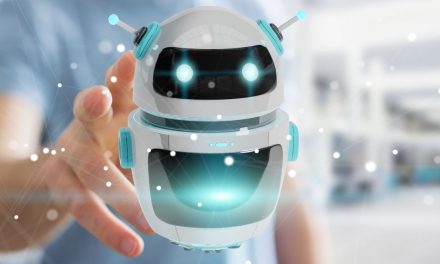By Jack Cumming
In school, at least where I went to school, we were taught that evolution meant “survival of the fittest.” As children, we just accepted whatever we were taught, but now as adults, we can see that “survival” means the demise of the rest. Moreover, we now grasp the subtlety that those others must die young before they have “less fit” offspring. The solemn progression of the generations is the key to human advancement.
The Solemn Progression
Death is the engine for evolution. That applies not only to human evolution but to many other aspects of the pursuit of excellence and human good. That pursuit can be ruthless and relentless.
For instance, a competitor upstart bests a long-established corporate behemoth. More often than not, the behemoth fails to respond. Most often, it is transcended by the fitter, wiser upstart. Sears Roebuck was transcended by Amazon. IBM was once a feared monopoly. Not only did Microsoft upend IBM, but it too became a feared monopoly. It’s not that anymore.
Economists like to call this phenomenon “creative destruction.” Creative destruction is the process by which newer, faster, more creative businesses usurp the financial success of older, stagnant, bureaucratized businesses. That’s the theory.
Actually, it’s very practical and very constructive. It’s how humankind progresses toward better living for everyone. If we can become more productive per capita, then everyone can afford the conveniences that once only the wealthy enjoyed.
If you think historically, you know that most of us today enjoy a life that once only wealthy aristocrats had. The many appliances in our kitchens today replace the huge kitchen staff that we got to know in Upstairs-Downstairs on PBS. Now everyone can have the benefits of the “upstairs” life of that bygone era, and the “downstairs” is largely mechanized.
AI’s Evolution
Evolution is also central to AI (I prefer to think of it as “augmented” intelligence instead of “artificial”). This article continues our exploration of what the AI revolution can mean, may mean, could mean, will mean for senior living.* Here’s how it does it: AI can create its own computer programs, called bots, and it can create them very rapidly and in massive numbers.
Thus, all we need to do is to let AI check which “bots” are very good and which are mediocre. Mediocre bots are discarded. Discarding has the same evolutionary impact as the progression of human generations through death and birth. The surviving bots get better and better over time.
Fear of the Unknown
We may not immediately know how that evolved bot succeeds, but we know that it outperforms discarded bots. That not-knowing is why astute minds like Elon Musk and Geoffrey Hinton advise caution. Such machine-enabled improvement is revolutionary. Many people take caution, escalate it to fear, and then stay mired in indecision.
AI is already proving to have a revolutionary impact on our language and on our lives. Some AI impacts have not been immediately obvious. Google Search moved seamlessly to an AI-based system in 2017, though the earlier AI-like unraveling of misspellings was introduced much earlier, in 2001. CarPlay’s navigation application is a heavy user of AI processing.
Breaking Free From Stagnation
AI is here, and, with the right approach, it could optimize many of the most challenging tasks of senior living. Where to locate new enterprises? Put AI to work. How to bring meaning to a person whom dementia has robbed of their wits? AI is promising. How to make senior living affordable as a mass industry beyond the affluent? AI can promote productivity.
The applications are only as limited as human imagination. AI doesn’t replace that human faculty. It will take the human-centricity of senior living to put AI to work. It’s here now, though, and its promise is such that it could lift the latter years of those now working in senior living. The irony may be that they will be benefitted in their old age by the same technology that makes some of their jobs archaic now.
The Risk of Stagnation
The other day, Irving Stackpole, a senior living thinker, sent an email with a quote from W. Edwards Deming. Deming is the man behind the rise of Japanese manufacturing as a mark of quality. Stackpole quoted Deming as having said: “It is not necessary to change. Survival is not mandatory.” It’s not necessary for senior living to survive as it is now practiced.
In truth, we can say with near certainty, “Change is coming to senior living, and the old ways will not survive.” We may not immediately understand how AI keeps learning and improving, but it does, and we’d best astutely and ethically adopt what it can do.
AI in senior living will most often lift the value of ingenuously configured care devices. We sometimes call those “robots,” which brings to mind creepy, stiff-legged, humanlike creatures, but assistive care devices are no more likely to look like a human than an automated teller machine looks like a human teller.
The question isn’t whether there will be change but whether change will benefit today’s leaders or those who supplant and supersede them. Click here to hear AI simply deconstructed.
*Here are Jack’s previous articles in this series about AI and senior living: part 1, part 2, part 3. Subscribe here to read future entries.










